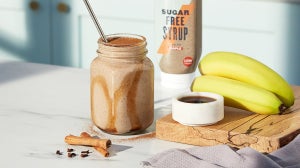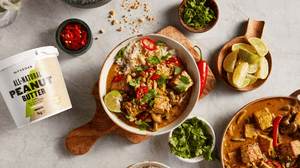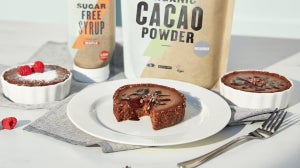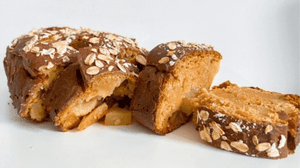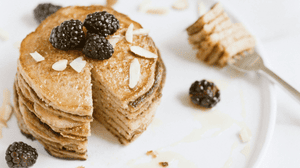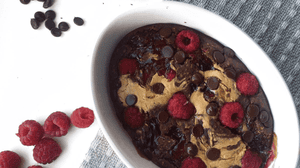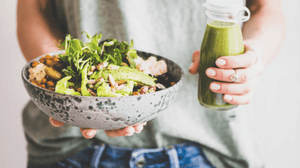
A good nights’ sleep is essential for so many aspects of wellbeing, from energy levels to mood. Regularly experiencing poor night’s sleep can negatively impact your hormones, causing an increase in irritability and anxiousness; meanwhile, hunger levels increase along with cravings for high energy foods.
Environmental triggers for poor sleep include eating late at night, too much caffeine, high stress levels, feeling anxious or a change in routine (late night out anyone?)
While diet alone may not help to cure regular sleepless nights, there are some foods and drinks that can be added to a daily routine which may help to promote sleepiness.
Foods high in the amino acid tryptophan or hormone melatonin have been linked to improved sleeps; high carbohydrate foods and certain properties within fruit and vegetables are also thought to promote sleep. Examples of these beneficial properties include tryptophan and melatonin, antioxidants, and minerals such as calcium, potassium and magnesium.
Here are 10 foods and 5 lifestyle tips to help you get to sleep a little easier!
- Cherries
- Peanut Butter
- Herbal Teas
- Bananas
- Almonds
- Oats
- Brazil Nuts
- Kiwis
- Flax Seeds
- Fortified Plant Milks
- Lifestyle Changes To Help Sleep
- Food And Drinks To Avoid Before Bed
- FAQs
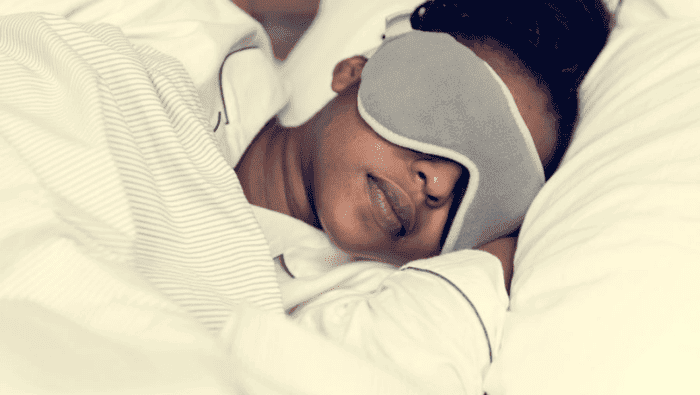
1. Cherries
Cherries may help to improve sleep for a number of reasons – not only do they contain melatonin, but they can also stimulate serotonin, a hormone that contributes to the sleep/wake cycle. Low levels of serotonin can reduce the onset of REM sleep; the stage of sleeping where memory consolidation and dreaming can occur.
2. Peanut Butter
Peanut butter contains tryptophan, an amino acid that can be converted for multiple different uses. Not only is it a precursor to serotonin, but also melatonin, a hormone that promotes feelings of sleepiness during the evening.
3. Herbal Teas
Caffeine can stay in your system for 5-6 hours. This means your afternoon cup of coffee can be negatively impacting sleep. Try avoiding caffeine in the afternoon if you are struggling to sleep and swap to herbal tea. These are naturally caffeine free and often contain sleep promoting ingredients such as lavender or chamomile.
4. Bananas
Like cherries, bananas contain both serotonin and tryptophan. Furthermore, bananas contain vitamin B6 (pyridoxine) which is used in the process of converting tryptophan into melatonin, to help stimulate sleep.
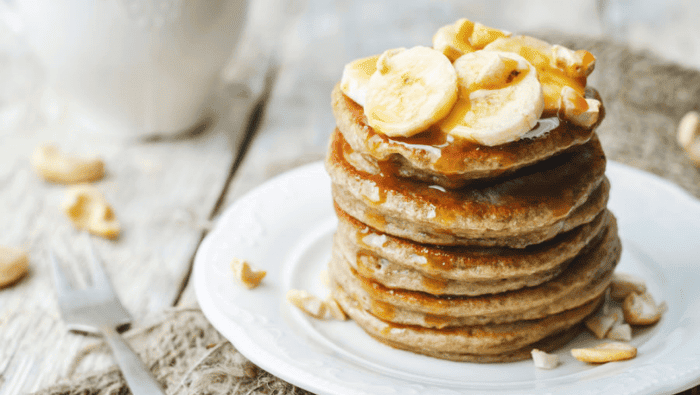
5. Almonds
Almonds are generally considered to be a nutrient powerhouse; not only do they contain tryptophan (which may help sleep), they are also a source of protein, magnesium and calcium. Magnesium has been anecdotally used to help promote sleep due to it’s associated relaxation properties.
6. Oats
High carbohydrate foods like oats can help to boost the absorption of tryptophan. Furthermore, carbohydrate foods trigger the release of insulin, which can cause sleepiness – the same reason we can feel sleepy after a carbohydrate rich lunch!
7. Brazil Nuts
Brazil nuts are an excellent source of selenium – a mineral that plays a role in various functions within the body, including immune function, reproduction, and hormone health. Low levels of selenium have been linked to poor sleep, especially difficulty falling asleep.
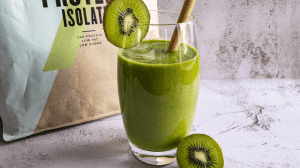
8. Kiwis
Melatonin is a hormone that helps to regulate the body’s sleep/wake cycle, as they are a natural source of melatonin. So a bowl of porridge isn’t just a great way to start the day… Much like whole grains, oatmeal also triggers insulin production. This naturally raises your blood sugar, making you more likely to feel tired.
9. Flax Seeds
Like many other seeds, flax seeds and flax seed powder contain melatonin. Most melatonin production is triggered by light cues however, there research suggests that eating foods high in melatonin may help to improve sleep. Sunflower seeds can also be used to try and boost melatonin levels.

10 Foods That Reduce Bloating
Try these tips to help relieve bloating...
10. Fortified Plant Milks
A glass of milk before bed to help sleep is a long-established practice. However, animal milks contain different proteins and minerals compared to plant-based milks. Fortified soy milk is a great plant-based alternative due to the high calcium content. Calcium is not only important for bone health, but also for sleep – increased levels of calcium are associated with fewer difficulties falling asleep.
Lifestyle Changes To Help Sleep
1. Eat enough food
It’s important to eat enough food before heading to bed – not eating enough during the day can cause early morning or mid-sleep waking due to hunger. On other hand, overeating before bed, or eating late at night, can also negatively impact sleep as the digestive system is having to work extra hard when it should be resting.
Try and eat your evening meal at least 2 hours before bedtime to allow time for digestion. If you are hungry just before bed, a small snack may be useful to aid sleep.
2. Avoid caffeine
Caffeine remains in the bloodstream, even when it’s no longer causing feelings of alertness. This can have a negative impact on sleep. Some people find that cutting out caffeine after lunch (or even late morning) can be helpful.
3. Reduce alcohol
While it can feel like a glass of wine or two helps to drift off into sleep, alcohol actually prevents us from entering into the restorative phases of sleep.
4. Increase physical activity
Regular exercise is important for both physical and mental health. Having a regular exercise routine may help to improve sleep whilst counteracting the negative impact of prolonged sitting (as most of us do for work!). However, avoid exercising within two hours of bedtime, as this can actually increase feelings of wakefulness.
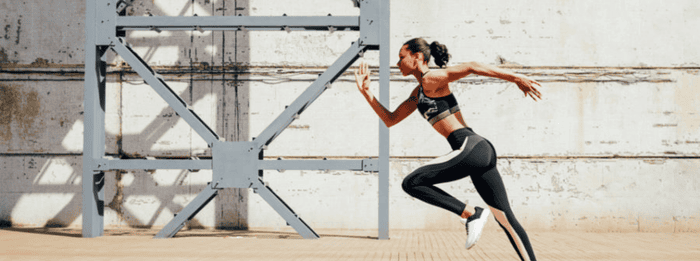
5. Manage stress levels
Anxiety is one of the biggest triggers for poor sleep. Finding ways to manage stress and anxiety is integral to good sleep health. Meditation, mindfulness, yoga and journaling are all ways that may help to reduce anxiety.
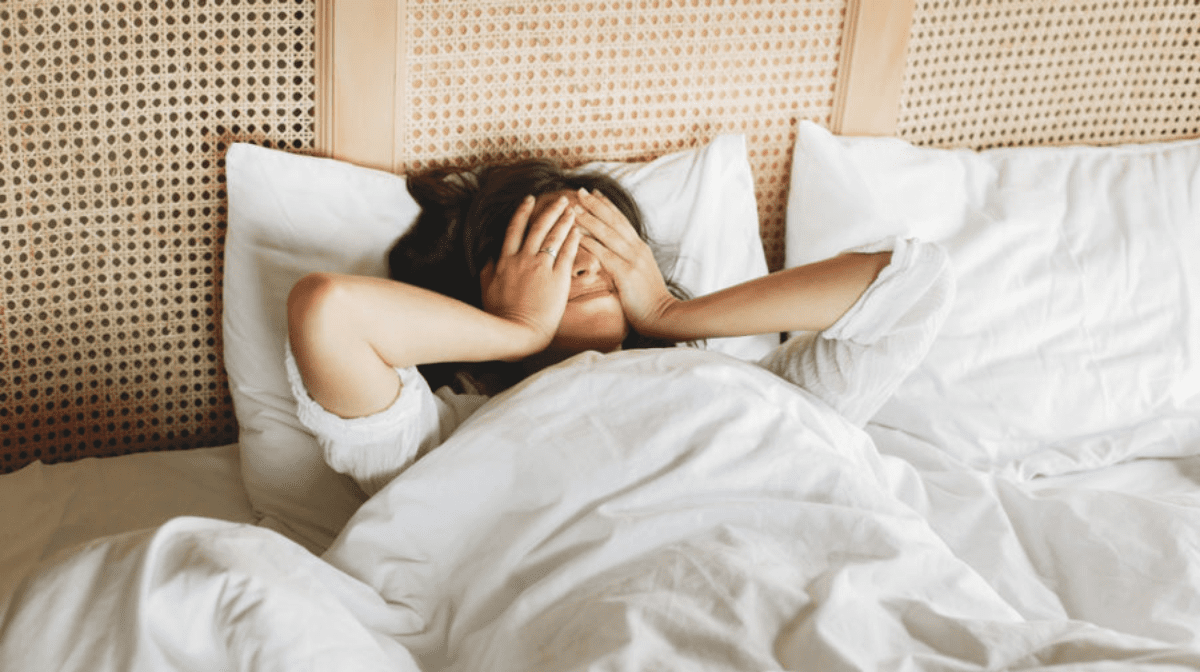
How To Relieve Stress: 10 Practical Ways
Follow these tips so you can lead a more peaceful and healthy life.
Foods And Drinks To Avoid Before Bed
Any foods that affect the natural sleep-wake cycle should be avoided before bed. These include:
Caffeine
Alcohol
Spicy or greasy foods
Chocolate
High-salt foods
Talk To Your Nutritionist
This article is for educational purposes only and should not be used as a substitute for medical advice. If you have concerns about diet or sleep, please contact your GP or other relevant healthcare professional.
Take Home Message
Getting a good’s night sleep is vital for our hormone health, mood and energy levels. Food high in melatonin, tryptophan or serotonin have been linked to improved sleep health. Caffeine and alcohol can disrupt sleep, as can salty, spicy or greasy foods. If you are struggling with sleep, try adding some of these foods as a bedtime snack, along with practicing good sleep hygiene.
For more expert advice, recipes, and exclusive offers sign up to the Myvegan mailing list.
FAQs
What are the best foods to eat before bed?
Food high in melatonin, serotonin and tryptophan may help with sleep – a slice of toast or a bowl of oats topped with peanut butter and banana is a powerhouse combination which combines all three of these nutrients!
What foods should be avoided before bed?
Foods that are salty, greasy or fatty may interfere with sleep, as your gut has to work harder to try and digest these foods. Salty foods may also increase thirstiness, which can lead to night-time waking.
What to do if you’re hungry before bed
A light snack before bed may be beneficial if you are struggling to sleep. A combination of peanut butter, banana and whole grains is a great light snack pre-bed. A hot drink (caffeine-free) may also help to promote sleepiness
Binks H, Vincent G, Gupta C, Irwin C, Khalesi S. Effects of diet on sleep: a narrative review. Nutrients. 2020; 12(4): 936.
https://www.mdpi.com/2072-6643/12/4/936
https://library.sheffieldchildrens.nhs.uk/sleepy-foods/
Paredes S, Barriga C, Reiter R, Rodriguez A. Assessment of the potential role of tryptophan as the precursor of serotonin and melatonin for the aged sleep-wake cycle and immune function: Streptopelia Risoria as a model. [internet]. Int J Tryptophan Res. 2009;2:23-36. Available from: https://doi.10.4137/ijtr.s1129
Pereria N, Naufel M, Ribeiro E, Tufki S, Hachul H. Influence of dietary sources of melatonin on sleep quality: a review. J Food Sci. 2020; 85(1): 5-13
Jenkins T, Nguyen J, Polglaze K, Bertrand P. Influence of Tryptophan and serotonin on mood and cognition with a possible role of the gut-brain axis [internet]. Nutrients. 2016; 8(1): 56. Available from: https://doi.10.3390/nu8010056
Grandner M, Jackson N, Gerstner J, Knutson K. Sleep symptoms associated with intake of specific dietary nutrients. J Sleep Res. 2014; 23(1): 22-34
National Institutes of Health. Selenium [internet]. National Institutes of Health. March 2021. Available from: https://ods.od.nih.gov/factsheets/Selenium-HealthProfessional/
Hunter D, Skinner M, Ferguson A. Kiwifruit and health- chapter 12. Fruits, vegetables and Herbs. Elsevier publishing. London: UK.
http://dx.doi.org/10.1016/B978-0-12-802972-5.00012-3
NHS. How to fall asleep better and faster [internet]. NHS. Available from: https://www.nhs.uk/every-mind-matters/coronavirus/how-to-fall-asleep-faster-and-sleep-better/
NHS. Trouble sleeping? [internet]. NHS. Available from: https://www.nhs.uk/every-mind-matters/mental-health-issues/sleep/

Related Articles
